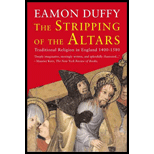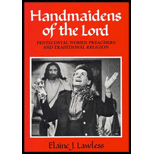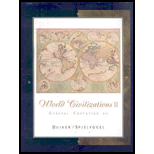IFA Professional's Handbook for Perso..., Careers in Abuja
Practitioners' Handbook for the Ifá Professional was written with the initiated, practicing Babaláwo and Ìyánífá in mind. It is awesome! It's purpose is to offer enough information to those Awo's who may not have access to a local teacher of Ifa. At least you can work with confidence until you can hook up with the correct Oluwo-Ifa. This book becomes a very useful additional tool in ifa practice. The book addressed specific areas in working with Ifa. It is written and explained in one only way an expert could. Very helpful for students and followers of Ifa especially those outside and away from their Oluwos therefore this book is a must for your library. Aboru Aboye O Ogbo ato. Ifa agbe wa ooo.. Cllick Here to Buy Your Copy
Ifá is the word of Olodumare encompassing all knowledge of things past, present and future. It is sometimes used interchangeably as the name for the orisha deity Orunmila. Orunmila is theorisha of wisdom and knowledge, who created the system and method for accessing the knowledge of Ifa.

Practitioners' Handbook for the Ifá Professional was written with the initiated, practicing Babaláwo and Ìyánífá in mind. It is awesome! It's purpose is to offer enough information to those Awo's who may not have access to a local teacher of Ifa. At least you can work with confidence until you can hook up with the correct Oluwo-Ifa. This book becomes a very useful additional tool in ifa practice. The book addressed specific areas in working with Ifa. It is written and explained in one only way an expert could. Very helpful for students and followers of Ifa especially those outside and away from their Oluwos therefore this book is a must for your library. Aboru Aboye O Ogbo ato. Ifa agbe wa ooo.. Cllick Here to Buy Your Copy
Ifá refers to the system of divination and the verses of the literary corpus known as the Odú Ifá. Yoruba religion identifies Orunmila as the Grand Priest; as that which revealed Ifá Oracle divinity to the world. Such is his association with the Ifá Oracle divinity; in some instances, the term "Orunmila" is used interchangeably with Ifá.
Olodumare or Olorun as the supreme, self-existing deity. According to author Bolaji E. Idowu:"He is supreme over all on earth and in heaven, acknowledged by all the divinities as the Head to whom all authority belongs and all allegiance is due. . . His status of supremacy is absolute. Things happen when He approves, things do not come to pass if He disapproves. In worship, the Yoruba holds Him ultimately First and Last; in man's daily life, He has the ultimate pre-eminence." In the Yorùbá belief system, Olodumare: God in Yoruba Belief
or Olorun as the supreme, self-existing deity. According to author Bolaji E. Idowu:"He is supreme over all on earth and in heaven, acknowledged by all the divinities as the Head to whom all authority belongs and all allegiance is due. . . His status of supremacy is absolute. Things happen when He approves, things do not come to pass if He disapproves. In worship, the Yoruba holds Him ultimately First and Last; in man's daily life, He has the ultimate pre-eminence." In the Yorùbá belief system, Olodumare: God in Yoruba Belief has àṣẹ over all that is. It is for this reason that He is considered supreme.
has àṣẹ over all that is. It is for this reason that He is considered supreme.
Orunmila is recognized as a primordial 201 Irunmole that was present both at the beginning of Creation and then again amongst them as a priest that taught an advanced form of spiritual knowledge and ethics, during visits to earth in physical form or through his disciples.
Orunmila is the spirit of wisdom among the Irunmole and the divinity of destiny and prophecy. He is "Igbakeji Olodumare" (second in command to Olodumare; often also playfully translated as "second calabash to God", since "igba" means "calabash") and "eleri ipin" (witness of fate). Orunmila is also referred to as Agbonniregun, the embodiment of knowledge and wisdom of Ifá.
Ifa jé òrìsà kan pàtàkì láàrin àwon Yorùbá. Àwon Yorùbá gbàgbó wí pé Olódùmarè ló rán ifá wá láti òde òrun latí wá fi ogbón rè tún ilé ayé se. Ogbón, ìmò, àti òye tí olódùmarè fi fún ifá ló fún ifá ní ipò ńlá láàrin àwon ìbọ ní ile Yorùbá. “A-kéré-finú-sogbón” ni oríkì ifá.
jé òrìsà kan pàtàkì láàrin àwon Yorùbá. Àwon Yorùbá gbàgbó wí pé Olódùmarè ló rán ifá wá láti òde òrun latí wá fi ogbón rè tún ilé ayé se. Ogbón, ìmò, àti òye tí olódùmarè fi fún ifá ló fún ifá ní ipò ńlá láàrin àwon ìbọ ní ile Yorùbá. “A-kéré-finú-sogbón” ni oríkì ifá.
Ìgbàgbó Yorùbá ni wípé ní ìgbà kan rí, ifa gbé òde-ayé fún ìgbà pípé kí o tóó padà lo sí òrùn. Ní ìgbà tí ifá fi wà ní ilé ayé, ó gbé ilé-ifè fun ìgbà péréte. Sùgbón ní ìgbà tí òrùnmìlà fi wà láyé yìí naa, a tún maa lo sí òde òrun léè kòò kan tí olódùmarè bá pèé láti wá fi ogbón rè bá òun tún òde-òrùn se. Nítorí náà gbáyégbórun ni ifá ńse.
Ìtàn so fún wa wipe omo méjo ni òrúnmìlà bí nígbà tí ó wà láyé, nígbà tí ó di ojo kan ti òrùnmìlà ńse odún ni òkan nínú àwon omo yìí tíí se àbíkèhìn pátápátá báse àfójúdi sí òrúnmìlà, ni òrùnmìlà bá binú fi ayé sílè lo sí òde orun. Ni ìfá bá relé olókun kòdé mó. Ó léni té bá ri i, e sá maa pè ní baba”. Sùgbón òrùnmìlàfún àwon òmo rè méjèèjo náà ní ikin mérìndínlógùn ó ní be e délé bee bá fówóó ní, eni tè é maa bi ninu. Ìkín mérìndinógun náà ni à ń lò lòníí láti bèèrè nnkan lówó ifa.
women occupy a central place in the religious of Ifá and life of the Yoruba people and shows how men and women engage in mutually beneficial roles in the Yoruba religious sphere. Visit Osun Osogbo: Sacred Places and Sacred People
It explores how gender issues play out in two Yoruba religious traditions-indigenous religion and Christianity in Southwestern Nigeria. Rather than shy away from illuminating the tensions between the prominent roles of Yoruba women in religion. Click here for Women in the Yoruba Religious Sphere (Mcgill Studies in the History of Religions, a Series Devoted to International Scholarship)


